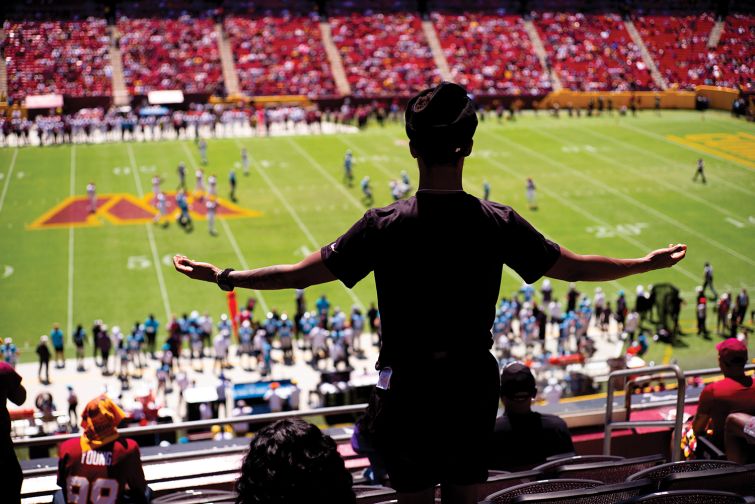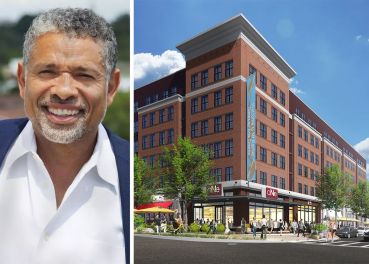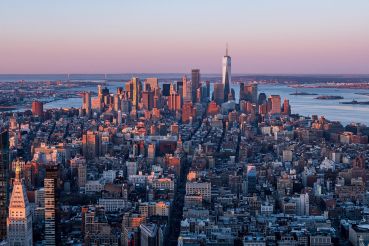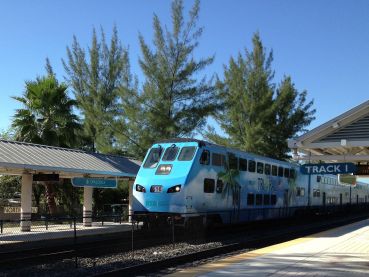The Game Is On to Win the Washington Commanders’ New NFL Stadium
Maryland, Virginia and D.C. itself are wrangling to lure what would be a kind of city within a city after the franchise's current arena lease expires in 2027
By Matt Blitz July 17, 2023 6:00 am
reprints
As the Washington Commanders close in on new owners, the team’s search for a new home in the D.C. area could also be nearing the end zone.
In April, longtime owner Dan Synder finally agreed to sell the National Football League franchise to billionaire Josh Harris and a large ownership group (which includes basketball legend Magic Johnson) for a record sum of $6 billion. Despite a few hiccups along the way, it appears the sale will go through sometime this summer. When it finally does, attention will turn to where the Washington Commanders will play when the team’s lease at FedEx Field in Landover, Md., expires in 2027.
Where (or if) the team moves is shaping up to be a battle between neighboring jurisdictions, not unlike the competition for the FBI’s headquarters that has pitted Maryland against Virginia. The main contenders span the site of the team’s onetime home in the heart of D.C. still pulling the strings of nostalgia, sites in Northern Virginia counties offering large swaths of land and ample incentives, and its current Maryland home looking to transform into a “mini-city” complete with a hotel, restaurants and a convention center.
Wherever the stadium ends up, it has the potential to transform the area around it.
“Any new stadium in the NFL is going to be the next biggest thing,” said Terry Clower, a public policy professor at the Schar School of Policy and Government at George Mason University in Virginia, while noting the cost of the stadium will likely close in on $2 billion.
“Spending that much money in the region is certainly going to create a lot of temporary jobs, in terms of construction,” Clower said. “There will be a substantial regional economic impact that comes from that investment.”
Kickoff
The Washington Commanders’ search for a potential new home was underway well prior to Snyder’s agreement to sell the team, but the pending change in ownership, coupled with the lease’s approaching expiration date, has added urgency.
In 1997, the team made the big move out of Downtown D.C., leaving RFK Stadium for a sprawling, hastily built new stadium in suburban Maryland. The team signed a 30-year lease to play in the nearly 80,000-seat Landover stadium. Even then, there was criticism that the arena was too far, too big, a parking nightmare, and built too quickly. Three decades later, many of those criticisms remain relevant, plus a lack of upkeep has created dangerous maintenance issues such as bursting pipes leaking foul-smelling water.
Dating back to at least 2016, Snyder had eyes on moving the team back to D.C., or another site besides Landover, once the team’s lease was up at FedEx Field. However, two huge obstacles were blocking Snyder from hiking the ball. One was the team name, which was nearly universally regarded as a racial slur. D.C. officials insisted that the name had to change if there was any chance for the football team to move back to the District. Despite Snyder’s past insistence that it would never happen, the team finally got rid of the offending name in July 2020 and officially became the Commanders last year.
The other impediment to the team moving was the owner himself. In recent years, Snyder has been the subject of multiple investigations involving cultivating a toxic work environment, financial malfeasance, and sexual assault allegations. For both D.C. and Virginia officials, Snyder’s continued ownership was a major roadblock to doing business with the team.
With the ink close to drying on the deal to sell the team, that obstacle also appears to have finally been cleared for a move to a new state-of-the-art stadium.
Homefield advantage
It’s not a secret that many fans’ and team officials’ first choice would be a return to a stadium in the District of Columbia — specifically, the site of the aging, dilapidated and on-the-verge-of-demolition Robert F. Kennedy Stadium.
In the years since the football team moved, the stadium has been used for baseball, soccer, boxing matches, the World Cup, music festivals and the Olympics. But the last time a team occupied RFK was in 2018 and, late last year, the final seats were removed, leaving it essentially an empty shell and ready for demolition, which is expected to happen sometime this year.
There was a time, of course, when RFK Stadium was filled with cheering fans, and there’s some hope that those lingering memories could help lure the team back. In recent months, a number of prominent city officials have made public their desire to build a state-of-the-art multi-use development anchored by a football stadium on the soon-vacant site.
This includes D.C. Mayor Muriel Bowser, who’s been a consistent advocate of getting the Commanders to come back to D.C., telling a local politics show in May that “there’s really only one right, perfect place for the Washington Commanders.”
George Mason professor Clower says that, beyond pride, there’s definitely an economic argument to be made for the team to play within District limits. As the District struggles with office vacancies and a shrinking population, having the Commanders call D.C. home could inspire people to come back. “The District [being] the center of entertainment, amenities and the hospitality industry … attracts some people to want to live downtown,” Clower said. “Having the [team] back would certainly help its cool factor.”
Plus, as Clower noted, a stadium wouldn’t simply be a stadium, but rather an anchor for an entire entertainment complex, much like AT&T Stadium in Dallas and SoFi Stadium in Los Angeles. Already, Mayor Bowser has backed building a water park in the city with the RFK site as the most likely spot for it.
There is a major problem with this plan: The federal government owns the land on which the remains of RFK Stadium currently sit and has leased it to the National Park Service through 2038, restricting what can be built on the site.
The mayor, members of Congress, and even, recently, the team itself have lobbied for the feds to sell the land to the District, or at least allow the city to have more control over what’s built there.
In recent weeks, there appears to be some movement on that front. U.S. Rep. James Comer, who chairs the House Oversight Committee, is reportedly preparing a bill that would allow more flexibility for what D.C. can do with the land even as the federal government continues to own it, paving the way for the city to begin planning for a Commanders stadium on the site.
But, until that legislation becomes reality, D.C.’s plans remain on the bench.
When asked last month if she’s been in touch with the likely new owners, the mayor declined to answer the question specifically and said the current focus was getting control of the land.
Moneyball
While D.C. is certainly the nostalgic pick, one of three sites in Virginia may actually be the favorite for one major reason: money.
Earlier this year, ESPN reported that the new ownership group believes that the commonwealth would ultimately offer the best incentive package for the team to build there. The package could be worth up to $1.5 billion, double what Nevada gave the Raiders in 2017, which is the American record for stadium incentives. If the Virginia package came to pass, it would set a new record.
Actions in recent years seem to support the Commanders’ desire to move to Virginia. Last year, the NFL franchise purchased about 200 acres of land in Prince William County. Shortly thereafter, renderings leaked showing a proposed $3 billion “mini-city” anchored by a futuristic-looking football stadium. There’s also a second site in Prince William County that the team is reportedly considering in Sterling near Dulles Airport.
To the west, some Loudoun County officials also have expressed their willingness and optimism for the Commanders to build a stadium in their jurisdiction. After all, the team’s practice facility is already in Ashburn.
Beyond the money, there are factors that make Virginia’s outer suburbs potentially attractive for the kind of complex that would be built. “In Prince William, for example, there is more physical space to [build],” said Clower. “You are talking about a football stadium, a big convention hotel, and other [development]. There’s just more room to do things.”
But there are also potential hang-ups in regard to these sites. First, the Virginia General Assembly would have to pass legislation creating a Virginia Football Stadium Authority that would manage public financing, oversee zoning and construction, hire contractors, and handle other logistics associated with building a stadium. Then, the bill would have to be signed by Gov. Glenn Youngkin.
A bill of this nature was introduced last year but died with little fanfare, mostly due to the ongoing investigations related to Snyder’s ownership of the team.
Recently, county officials have reiterated that the ultimate decision on whether to allow the team to move Virginia, in general, is up to the General Assembly, which just went through significant primary elections earlier this month.
Plus, there seems to be little appetite to publicly finance a stadium through a tax increase.
“Loudoun and the Commanders have enjoyed a long business relationship that has proven financially beneficial to both parties,” a spokesperson for Loudoun County Board of Supervisors Chair Phyllis Randall told the press in April. “An expansion of their football operations in Loudoun County is an idea we’re eager to discuss, provided that Loudoun County taxpayers will not experience a single cent of tax increase to finance a stadium.”
Commercial Observer reached out to officials in both Loudoun and Prince William counties about whether they’ve been in touch with the Commanders’ likely new owners and if they are optimistic about the team moving to Virginia. Loudoun County did not respond by press time. Prince William officials emailed: “The Prince William County Department of Economic Development is in favor of opportunities that promise growth, economic vitality, and community enhancement. We believe any development that supports local businesses, offers potential job growth, and contributes to our community’s quality of life is worth exploring.”
Defensive line
Of course, there remains one other option that the team could take, and that’s staying put in Prince George’s County and building its own “mini-city” on what is currently parking lots for FedEx Field.
Last year, county officials proposed to the team a vision of a new “Stadium District” complete with a hotel, a convention center, shopping, restaurants, and an on-site sports book. The anchor would be a 65,000-seat indoor stadium on top of where FedEx Field’s parking lots currently are.
While similar to Virginia’s proposal, county and state officials made clear that keeping the team in Prince George’s County would help further the team’s social justice goals. Prince George’s population is more than two-thirds Black and has historically been one of the wealthiest majority Black counties in the country.
Then, earlier this year, the Maryland Board of Public Works approved $400 million in bonds to develop property around FedEx Field.
Plus, unlike the previous administration, Maryland Gov. Wes Moore seems to be open to working with the county and providing at least some public money to keep the team in the state.
“I’m absolutely willing to leverage taxpayer dollars if we know there’s going to be a significant societal return on the investment,” Moore told Axios in April. “[But] this cannot be done exclusively on a public dime.”
The big question with keeping the team in Prince George’s, said Clower, is that the county already has had its chance for the last 25-plus years. And, so far, development around FedEx Field and the economic impact on the surrounding community has left a lot to be desired.
“What I would have to question is that if [development] was possible, why didn’t it already happen with the stadium in Prince George’s County?” Clower said.
Prince George’s County officials had not responded by press time to requests about whether they’ve been in contact with the potential new owners and if the “Stadium District” proposal remains on the table.
Final score
Ultimately, said Clower, the football team is going to land wherever it can get the best deal. That likely means a combination of an incentives package, a commitment of public funds, a governing body willing to push on zoning ordinances, and readily available land.
At least in terms of what we know about an incentives package and readily available land, the Virginia sites seem to be in the lead. But there remains plenty of time for a comeback by D.C. or Maryland.
“I will give the NFL credit for one thing,” said Clower. “You can assume that they will draw out the drama on this as much as possible.”


